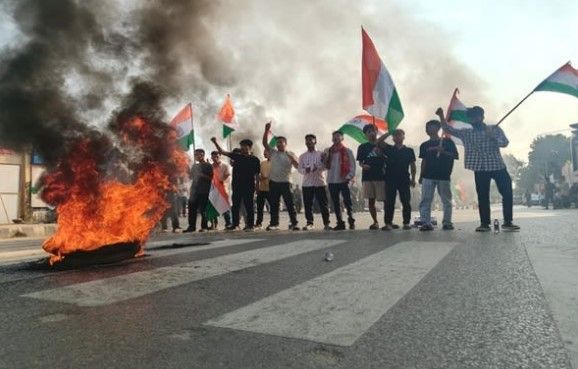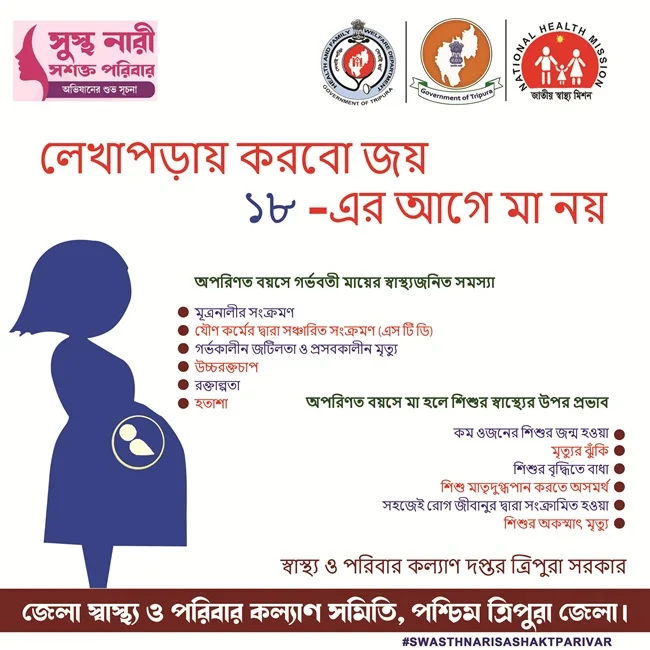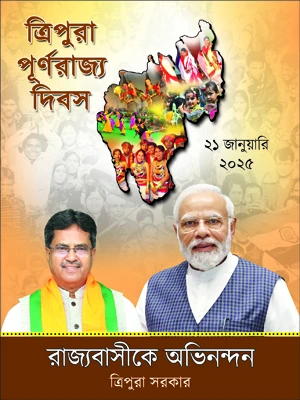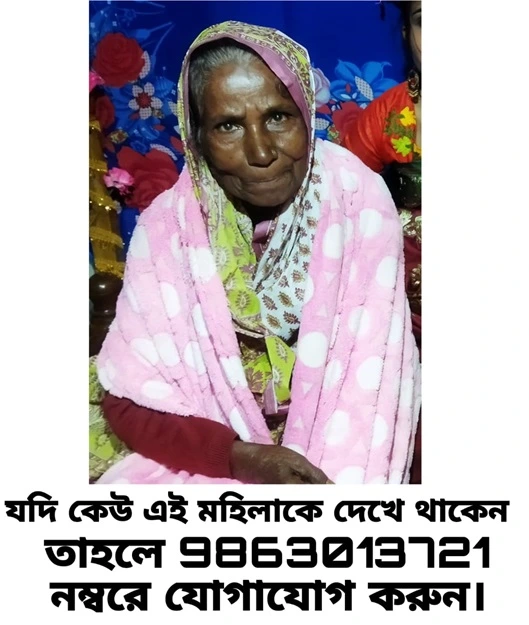Agartala | October 23,2025 | SKY LINK TIMES
Tripura Bandh:
Tripura came to a grinding halt on Thursday as the Tiprasa Civil Society (TCS) enforced a 24-hour statewide Tripura bandh, demanding immediate government action on eight key issues tied to indigenous rights, illegal immigration, and administrative justice.

The bandh, which began at dawn, triggered disruptions across major districts, including Hathai Kotor (Barmura Hills), Chandra Sadhu Para, Mungiakami, and Khowai, as protesters blocked roads, railway tracks, and market.
Table of Contents
Widespread Impact Across Tripura
Over 45 locations witnessed picketing, with activists, social workers, and even surrendered members of the National Liberation Front of Tripura (NLFT) joining the protest. Despite the tense atmosphere, officials reported no major incidents of violence until noon.
Jirania SDM Animesh Dhar confirmed that blockades remained “peaceful and coordinated,” although public life was completely paralyzed. The Agartala–Karimganj Express was stopped at Birgudas, while ambulances and essential services struggled through roadblocks in Teliamura and Shantirbazar.
In Agartala, Tipra Motha MLA Ranjit Debbarma led a peaceful rally near North Gate, urging people to “stand united for the sons of Tripura’s soil.” Police deployed in large numbers across urban and rural belts to prevent escalation.
Tiprasa’s 8-Point Demand
The Tiprasa Civil Society pressed for swift government intervention on the following issues:
1. Crackdown on illegal foreign infiltrators.
2. Setting up detention camps in every district.
3. Creation of a Special Task Force with BSF and Assam Rifles.
4. Implementation of Inner Line Permit (ILP) in Tripura.
5. Execution of the Tiprasa Accord.
6. Recognition of Roman script for Kokborok language.
7. Repeal of fraudulent Scheduled Tribe ordinances.
8. Full enforcement of the Triprasik Peace Accord (Sept 4, 2024).
Also Read:https://skylinktimes.in/tripura-police-seize-896-kg-cannabis/
Public Reaction and Political Undercurrents
Chief Minister Dr. Manik Saha appealed for calm and instructed all government employees to attend work, but attendance remained thin as major highways were blocked.
Frustration spilled onto social media, with citizens questioning both the bandh’s disruption and the administration’s passive handling. One commuter asked, “How is this a peaceful protest when tyres are burning and roads are blocked?”
Rumors of Tipra Motha’s tacit backing of the protest circulated online, though the party has not issued an official statement.
Former insurgent Chitta Debbarma clarified that the movement was “apolitical and purely indigenous-driven,” echoing past blockades led by late minister N.C. Debbarma. Analysts describe the bandh as a “turning point” in Tripura’s political climate, where ethnic identity, governance, and peace accords increasingly intersect.
Tripura at a Crossroads
As the bandh extended into the afternoon, Tripura experienced one of its most comprehensive shutdowns in recent memory. Analysts warn that the situation reflects deepening polarization and demands a balanced response from both the state government and law enforcement to prevent future unrest.
With growing calls for accountability, the state stands at a delicate crossroads — between the pursuit of peace and the resurgence of unrest.
For More Info Stay Tuned: https://skylinktimes.in



